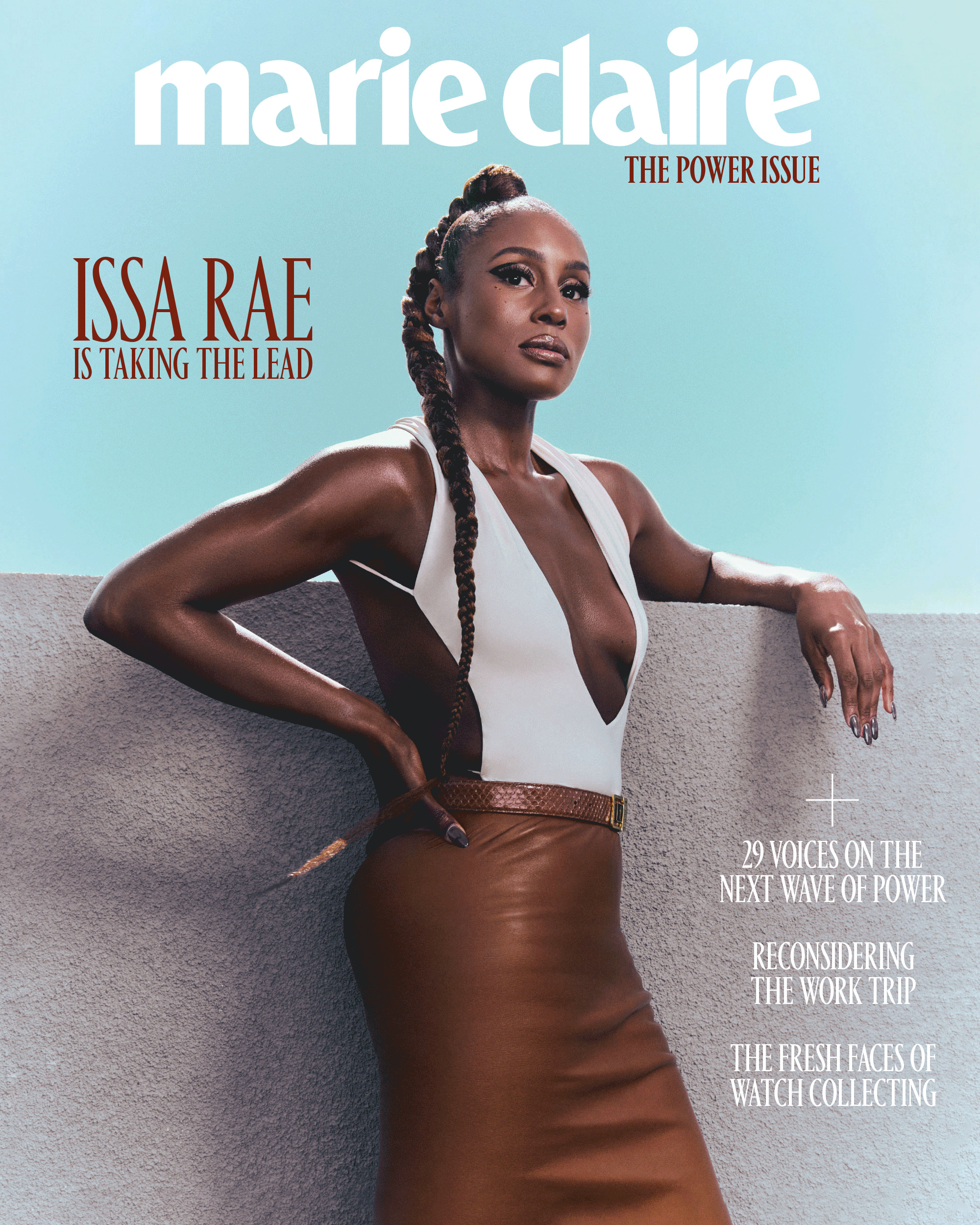Dressing the Culture Class
Over a decade after launching her label, Daniella Kallmeyer is still just a cool girl creating the wardrobe we all want.
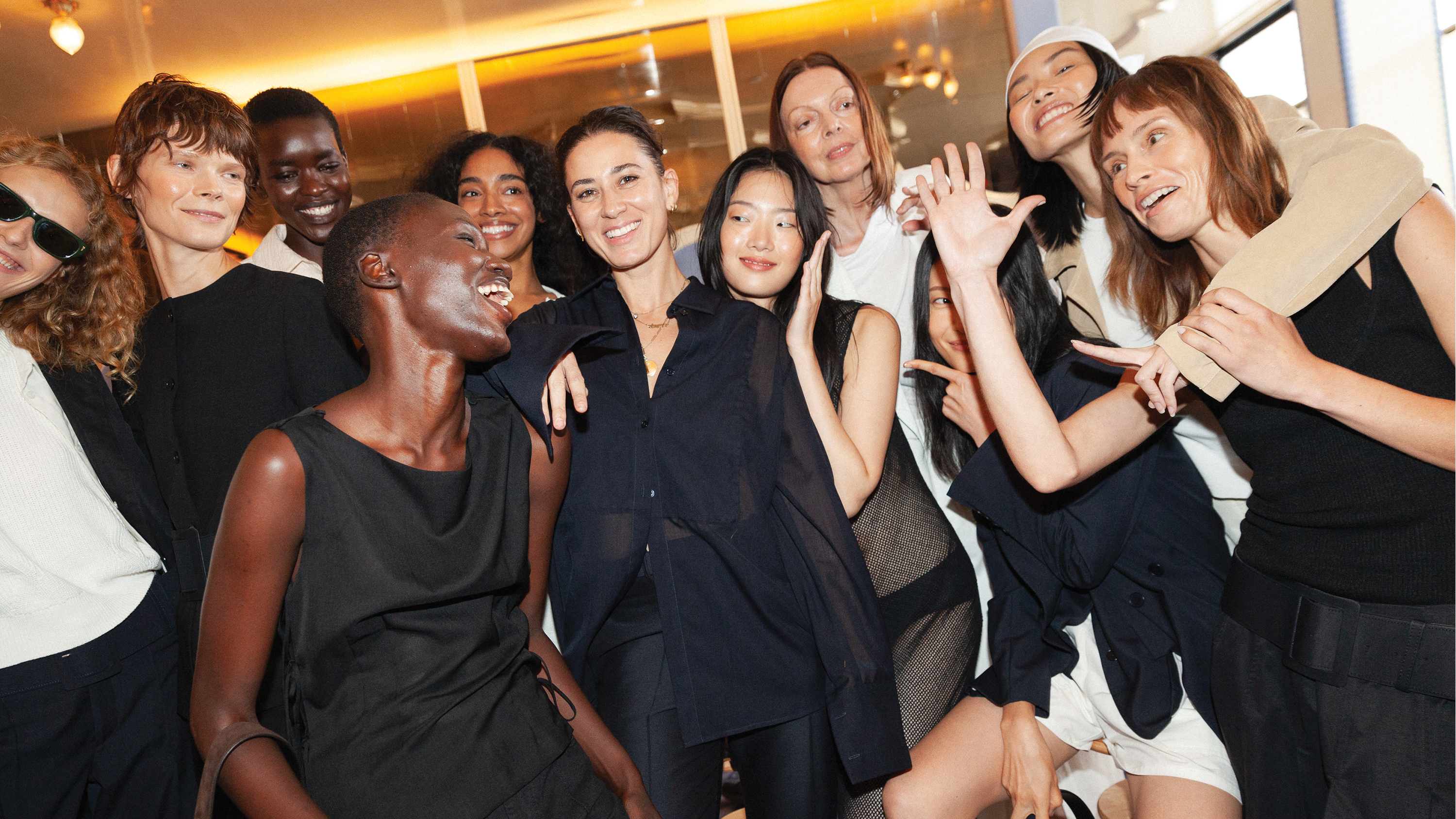

On a drizzly morning in September, the sunshine turned out to be hiding in the Corner Bar Dining Room at the Nine Orchard hotel in downtown New York. It was there that the designer Daniella Kallmeyer had—after over a decade in business—set up the first formal New York Fashion Week presentation for her namesake label, featuring a dozen or so models dressed in her spring 2024 collection.
The mood was all cheer and scarves tied just so. The models—wearing dark sunglasses and almond-toed sandals that I later learned retailed for $4.99, but which had a striking resemblance to an $890 version from The Row—chatted and smiled. The people who had been invited to watch the models swish around in tomato-red cardigans and mesh pants did, too.
The room was awash in the suiting staples for which Kallmeyer has become known—no Succession memes required. The clothes have never been quiet, per se, but more discreet. And most of the women who wear them still hear about them from the ultimate influencer: a well-dressed friend.
You have perhaps started to glimpse Kallmeyer's designs on late-night shows and red carpets. Katie Holmes is a fan. So is SNL fixture Chloe Fineman. Kate McKinnon wore a hot-pink Kallmeyer suit to the Barbie premiere and Sarita Choudhury—an actress whose latest scene-stealing role the current SAG-AFTRA strike bars me from mentioning—wore the brand's shawl-collar tuxedo jacket and Tár-ish white shirt to the presentation itself. She later went semi-viral for photos that showed her with a Dalmatian outside the hotel. (Google it.) The look made such an impression on writer Emilia Petrarca that she devoted an entire installment of her newsletter, Shop Rat, to helping The New York Times writer Jazmine Hughes approximate it.
Elsewhere at Nine Orchard that morning sans Dalmatian: soccer star Ashlyn Harris, actresses Sophia Bush and Julianna Margulies, and tennis-pro-turned-coach Rennae Stubbs. A man at a kiosk outside took coffee orders.
On social media later in the week, the brand accounts posted a recap with a declaration: "Café Kallmeyer Member Rule No. 1: If you see someone you admire, DO approach them and tell them how much you love them."
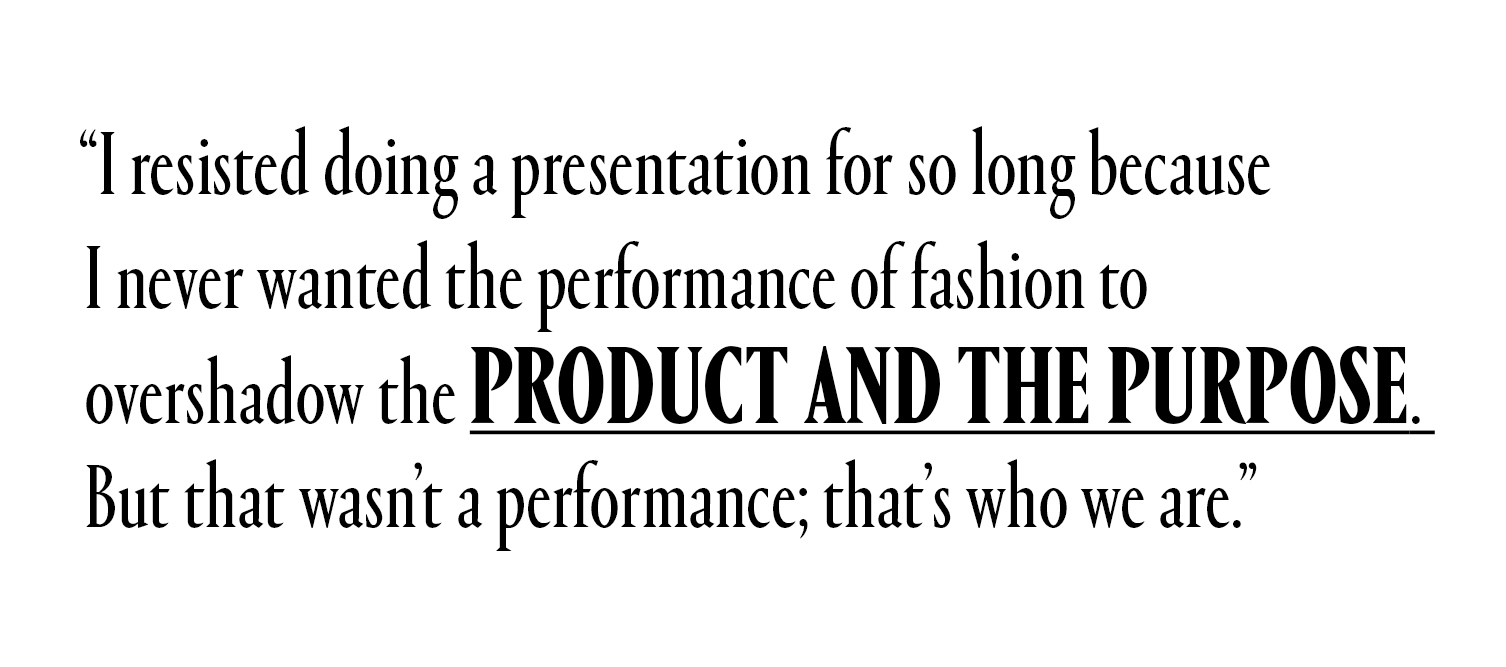
When Daniella Kallmeyer and I meet for breakfast the next month, she is still buzzing with that intention. "The people in the room were as much what that show was about as the clothes," she tells me. "I resisted doing a presentation for so long because I never wanted the performance of fashion to overshadow the product and the purpose. But that wasn't a performance; that's who we are."
Get exclusive access to fashion and beauty trends, hot-off-the-press celebrity news, and more.
At least as much as the reviews and the brisk sales, it was a convivial spirit of the show that thrilled her: People had arrived as brand enthusiasts. She hoped some might leave as friends. Let's disclose here at the top: That's what happened to me. I was introduced to Kallmeyer in the spring of 2022 via a mutual friend. And like Choudhury and Bush and a host of others before me, I became both an instant customer and a pal.
In principle, I do not write about friends, but I do subscribe to Café Kallmeyer Member Rule No. 1: I admire Daniella and have told her so. Café Kallmeyer Member Rule No. 2: Share the wealth.
Kallmeyer was born in South Africa and raised outside of D.C., but she was introduced to New York as a child, thanks to a grandmother who had settled in the Bronx. She started telling people she was from there around age 10.
How determined was she to be a designer? One summer, an older friend took her to experience Luca Luca—the since-shuttered, once-beloved boutique and atelier on the Upper East Side of Manhattan. Not content to watch, Kallmeyer took out her own "absurd little sketchbook" and soon convinced the owner to hire her as the store's first intern. She was 16.
When she finished high school, her friends threw parties. She produced a 20-piece collection and held a fashion show at her dance studio. Her parents were proud, but wondered about other outlets for her talent with needle and thread. (She could be a plastic surgeon! Creative and a "real business.")
Later, Kallmeyer landed at the London College of Fashion after a stint at Syracuse, which she knew, with characteristic instinct, would not be a fit. She took a job with Alexander McQueen while still at school. Then she moved to New York and spent the post-recession wilderness working freelance for brands like Proenza Schouler and Alice + Olivia.
At one point, she appeared on a fashion competition TV show. (IMDb has the receipts. Her mother made her go to the casting.) When that ended, she was in her mid-20s and bewildered to find a hole in the market for an obvious demographic: women with actual jobs.
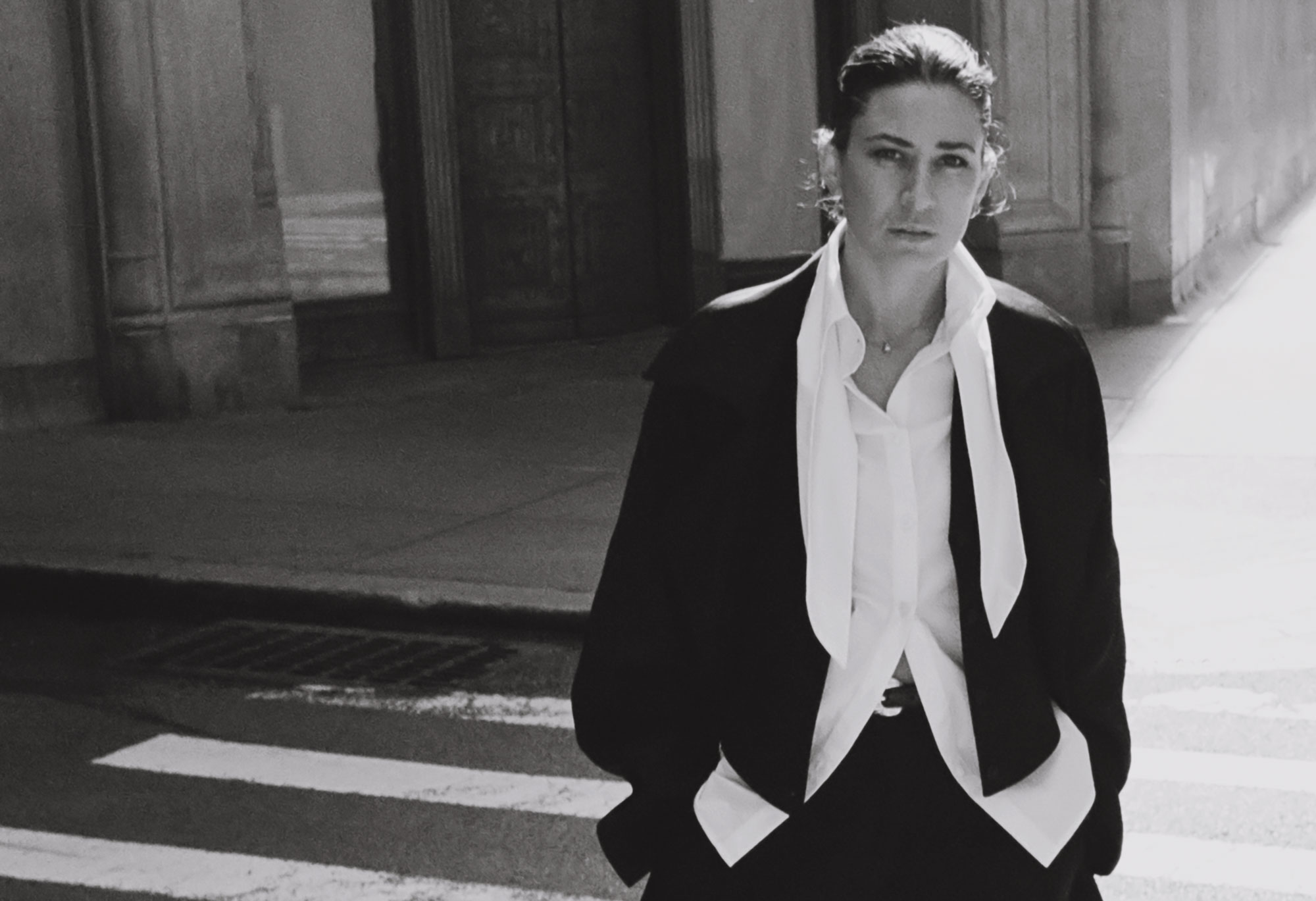
Daniella Kallmeyer in her signature separates.
At lunch with a mentor in New York City's garment district, she summarized her predicament: She didn't like what she saw in stores, so who could she learn from? He surprised her, telling her to strike out on her own. It was somewhat insane advice to give to a woman who was 25, with about $7,000 in her pooled bank accounts. But fine, she said. She would. She launched the label in 2012.
Kallmeyer came out to her parents not long after. She had been dating a woman and had her heart broken. The people closest to her had no idea. "I came home sick to my stomach," Kallmeyer says. "And I was like, 'I can't have you missing these things in my life.'"
Soon her personal sensibility further seeped into her work. "Being a female designer and designing for women without it occurring to me to be doing that for the male gaze" helped shape the brand ethos, she points out. "And being a queer woman affected how I approached clothing." Suits became a staple because her friends needed them. It turned out the Upper East Siders who reminded her of her grandmother did too. Her designs started to ooze the most coveted kind of elegance: ease. She set out to create from "a place of precision," but was determined there be "nothing precious about the clothes themselves."
She bootstrapped the business and sketched alone. When her mother visited, she asked for hot coffee as a treat. She knew where to go on Clinton Street to get dumplings for $1.25. But "even in moments where I've been like, I have no money. Why did I do this? I never felt like I should be doing something else," Kallmeyer says. "I thought, I have to just keep hocking my clothes and that will be enough. If enough people are wearing them, what else is there to this business?"
That conviction sustained her for a while. But, in 2019, she hit a wall. She needed stores to stock her designs, but buyers didn't know where to put them. They weren't cheap, but most pieces were under $1,000. "Me setting out to fill this gray area—I had created a void for myself," she says. "I didn't fit into luxury departments. I didn't fit into contemporary departments. And then I would show up and do a trunk show somewhere with a bunch of strangers who owed me nothing, and they'd be like, 'I've been looking for these clothes all my life.'"
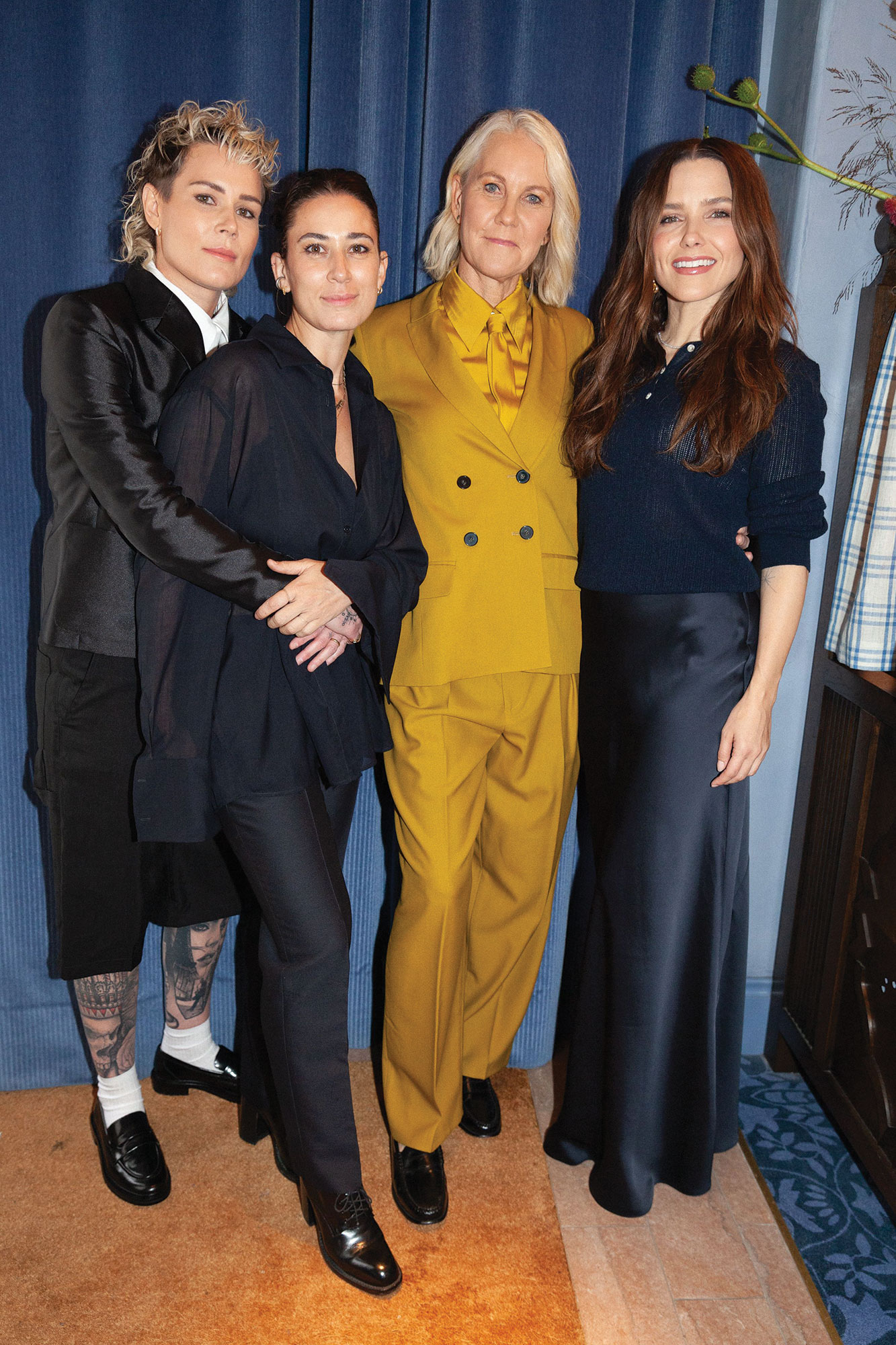
Ashlyn Harris, Daniella Kallmeyer, Rennae Stubbs, and Sophia Bush at the SS24 presentation at Nine Orchard.
It would have been inspiring if Kallmeyer weren't so broke. That winter, she took stock of her samples and decided to have one last hurrah. Across the street from her apartment, she had noticed a vacant store—cement beams, floor-to-ceiling windows, natural light. The landlords wanted a long-term lease, but Kallmeyer begged the realtor: How about a pop-up?
"I felt like Charlotte trying to convert to Judaism," she says, invoking the scene where Sex and the City's most iconic WASP is repeatedly turned away at the rabbi's door. "I asked over and over and over, and they said no over and over and over."
After a few months of stalemate, she made plans to close out her storage unit and sublet her studio. She fantasized about moving to upstate New York and learning to build furniture. She had tried! Then, just as she had finished packing up her space, and was at a restaurant eating "the worst burger of my life," the call came in. Not God, but the broker with an offer. A lease had fallen through. She could host the summer pop-up. Kallmeyer opened her banking app while he held on the phone. If she combined all of her accounts, she'd have enough cash "almost to the dollar." The store welcomed customers less than a week later. The one-month pop-up became two became six became permanent. She has been on Orchard Street ever since.
In a sense, opening the store was "starting from scratch," she says. It let her refine all the best parts of the business and create the kind of space where she wanted to shop. She customized it down to the fixtures. She has since expanded to a showroom around the corner, where she hosts press appointments and once catered Shabbat dinner for 50.
Amid the move toward frictionless e-commerce transactions, the store adds texture. It remains a temple for her ambitions. The process of dressing individual women, of helping them build out their wardrobes—she finds it as fulfilling as she did when she sold her first piece. "It's like, that's making somebody happy," she says. "That piece fits somebody, it belongs to somebody. This thing that's coming out of me—I'm creating it for somebody else. And every time that somebody connects to a piece, I'm like, Okay, that's what I'm doing. Now do another one."
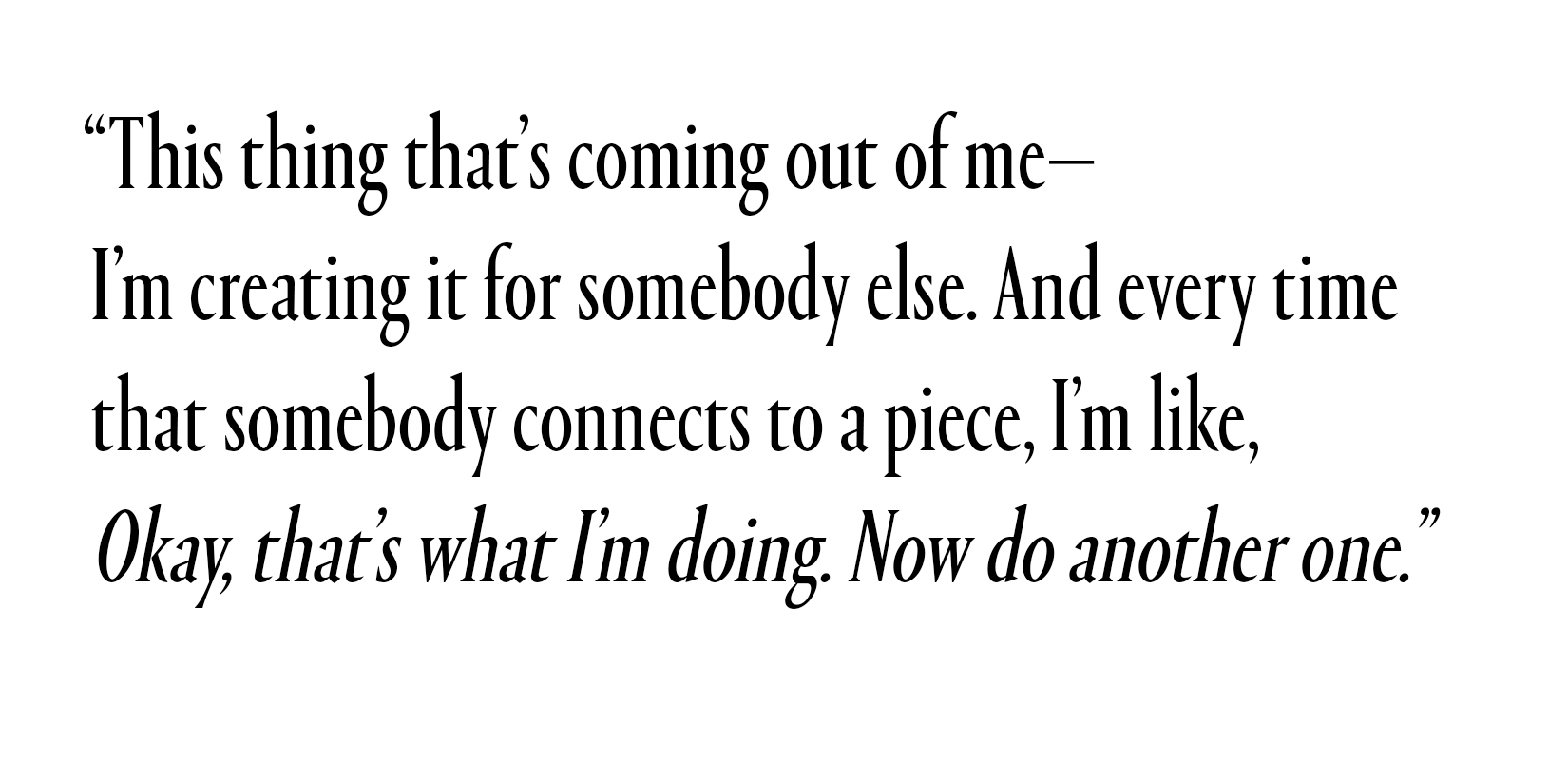
To the presentation, Sophia Bush wore Kallmeyer head-to-toe: open-weave knit polo, long satin skirt. All tonal midnight blue. The look somehow served both Hebrew school teacher and Sofia Coppola. It was quintessential Kallmeyer.
Bush met Daniella around 2015—pre-store, pre-gushing feature in the Financial Times and Vogue. Stacy London made the shidduch, knowing how much Bush loved a power suit. Between her work and her activism, Bush has had plenty of opportunities to sample the brand—the rare label that can travel from Capitol Hill to Los Feliz.
"As I move through the world wearing her clothes," I get stopped," Bush tells me. "Senators, other actors, women on the street who want to know where I got this perfect blazer." Once, she was walking through Milan and an Italian woman chased her down the street in pursuit of superlative separates.
Sarita Choudhury has noticed a similar desperation. "Whenever I wear something of hers, people ask me, 'What is that?' It's almost an urgency," she says.
When I broach Kallmeyer's sudden-seeming rise with Bush, she tells me: "It's so special to watch the world catching up." That's the maddening beauty of the arts. "It takes a decade to become an overnight success."
Kallmeyer is still bootstrapping the business, but she gets to "bootstrap bigger decisions now." We're all friends here, so she levels with me: "I would love this to be—and it will be—a big, successful brand. I will build generational wealth for myself that I didn't foresee when I was like, I'm going to be a fashion designer."
Empire-building can change a person, but Kallmeyer's inner circle isn't worried. "I feel like Daniella is kind of immovable," Choudhury says. "She can't help but be Daniella. Sometimes, she'll be like, 'I'm going to go to Italy,' and she'll just go on vacation because she needs to. Most people are like, 'I can't go on vacation!' But she knows she has to have a certain level of inspiration and fun." I see it too. She is rigorous about work and pleasure. And she is protective of both.
"As 25, I wrote a business plan to create this exact business," Kallmeyer says. "And at the time, it was the antithesis to what I saw in the market. And now it's something I've built regardless of what's going on in the market." It made her feel good to hear a friend affirm that recently, recalling how she once visited Kallmeyer at one of her first "studios"—essentially, a closet. "She was like, 'You talked about your brand then the same way you talk about it now.'"
That doesn't mean stasis, just consistency. "It's about a feeling, not about a look," Kallmeyer says. "The idea of being squeezed into a cupless bustier or a pant with a tiny waist or clothes that you can't sit comfortably in and talk to your friends in without adjusting—that is a feeling that I never wanted to replicate. And from a craft perspective, the way that clothes hang on the body is the most attractive part of doing this."
The schmatte business is a personal trade, after all, and it's personal to her. "The way you feel or change your gesture or change your stance or roll your sleeve—that is what's inspiring to me," Kallmeyer says. "Those moments are what make my brain spin."
Mattie Kahn is a writer who lives in New York. She covers politics, style, culture, and dangerous women. As far as she's concerned, candidates come and go, but the Oxford comma is forever.
